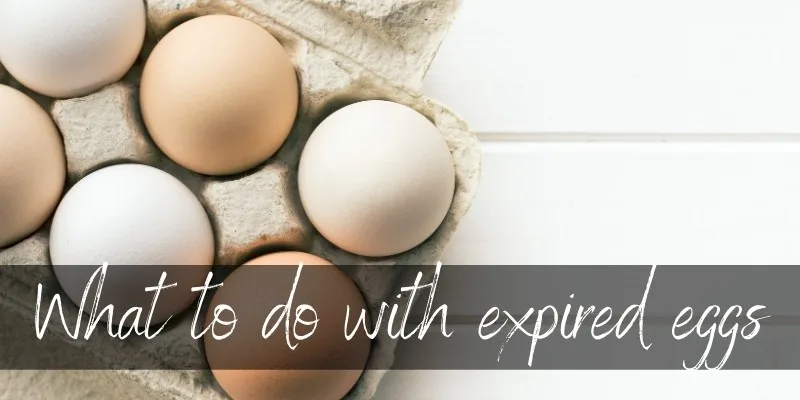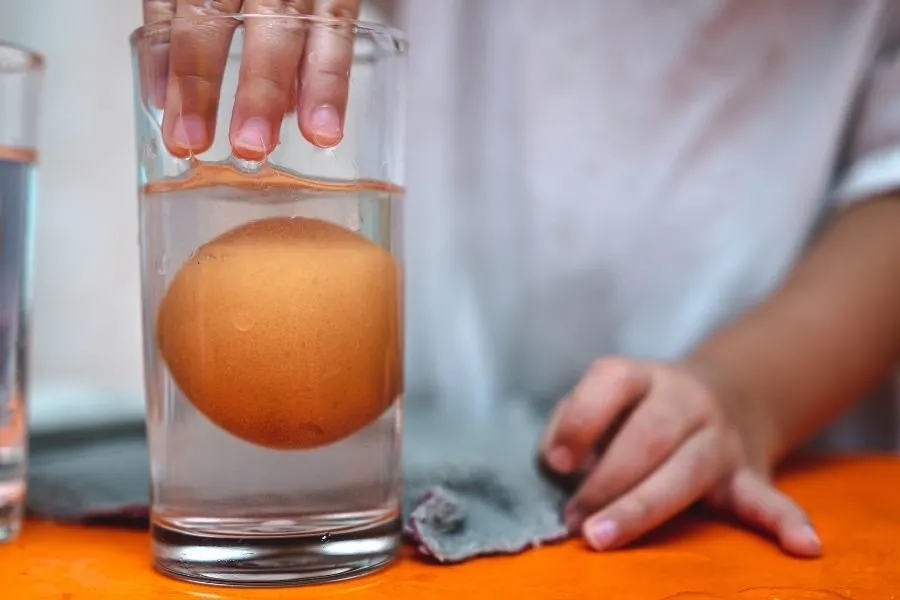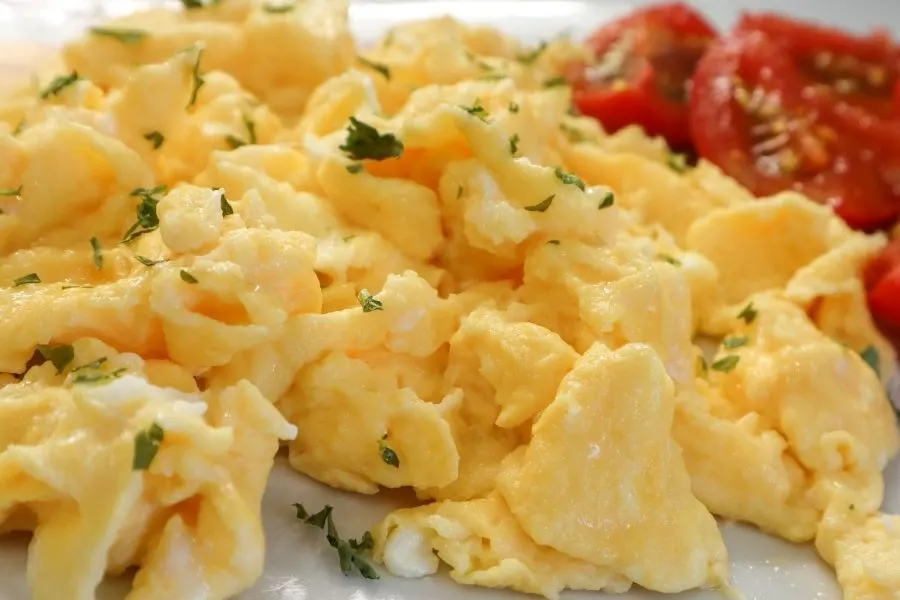Expired eggs might still be safe for consumption so don’t toss them off into the trash bin just yet. Yes, egg cartons have an expiry date mentioned on them.
Sometimes, you may not be able to finish off all the eggs that you have bought for the home. Some of them could be left out of your sight in the back of the refrigerator shelf.
And, when you discover them finally, it’s two weeks past the expiry date. Now, what to do with expired eggs?
Should you throw them or should you cook them and add it to breakfast, lunch or dinner? A good decision calls for examining the eggs to check have they really gone bad and they are edible no longer.

What to do with expired eggs
The first thing to do with expired eggs is give them a float test. Fresh eggs sink to the bottom, while expired eggs will float.
If you’re sure the egg is expired, you can either toss it in the trash, or use the shells as fertilizer for their calcium content.
Do not attempt to eat or feed your pets expired eggs, as they can cause an upset stomach or severe digestive problems.
Keep in mind that there might be a difference between the expiry date printed on the egg carton, and the actual state of your eggs. We should discuss that further.
Read Also:Do Scrambled Eggs Need Milk ?
Check to see if the eggs are truly expired
Sometimes eggs simply last longer than the stamp says, and sometimes they expire faster than expected.
When chickens lay their eggs, the eggs are good for about 4-5 weeks if kept in the fridge. But when you look at the stamp, it’s almost always a 30 day period.
This means there may be an extra week (possibly more) left in those eggs, past what the farmers say.
Granted, there must be an expiry date printed on them for health and food safety reasons, but like with dairy that date is flexible.
Nothing expires suddenly, it takes a few days for a food item to be thoroughly rotten. So it’s important to test your eggs to see if they’re truly expired.
How ? The float test. Currently there isn’t a more reliable method of checking if the eggs is still okay, aside from cracking it open.
If you don’t mind the smell, you can crack one open to see if it’s still good. If it’s expired, it will smell very strongly and it may a very unpleasant look and texture.
Still, the float test may be easier and a little safer. Here’s how to do it.
Float test your eggs
To carry out the experiment you need to take a bowl and fill it with water. You can take a glass also, just make sure it’s wide and tall.
Now put the eggs in the water and see what the egg does. It’s best to do this with a spoon, and to lower the egg gently into the water otherwise it may crack if you simply drop it in the water.
If the egg sinks and lays on its side, it’s fresh. You can fry it or make a scramble or use it however you wish.
If the egg is standing on its end, it’s not fresh but it’s not rotten either. You can use it after a hard boil.
The third possibility is that the egg floats in the water. This kind of egg is actually rotten and should be discarded.
But why do the eggs float? It’s because the egg cells are porous and when they remain in the storage for too long, the air makes its way inside the egg. Over time, sufficient quantities of air get inside the cells to make the egg float.
Aside from this, the bad smell you get from rotten eggs is hydrogen sulfide (derived from the sulfur in egg whites) and it builds up in the egg. Being a gas, it will be light and will help the egg flat.
You may also notice (if you’re brave enough to open the rotten egg) that the egg may be dried or at least drier than a usual egg

Old eggs as fertilizer
Now, what to do with expired eggs? Rotten eggs or eggs that float in the water are not good for human consumption. They smell terrible and can leave you sick if you eat them.
But an egg has a lot of protein and calcium. So, you should not throw them in the trash just yet. You may use an old egg to feed the chickens, but it must be cooked.
Whether it’s scrambled or hardboiled, it must be cooked. Again, this works with old eggs that are past the expiration date stamped on them, but do not give the hens rotten, stinky eggs.
The shell is calcium and it should go in your kitchen garden. In fact, farmers are known to plant eggs below or near a vegetable plant. This increases the plant productivity significantly. And, it’s not difficult to know why, given the high amounts of nutrients in the egg.
However you should note that eggs may attract pests like racoons or rats that will dig the plants to get to the eggs.
For this reason it’s best to only use the shell of the egg so the plant will get its calcium. Alternately, you can grind the shells into a fine powder and mix it into the chicken feed.
This way the hens get back the calcium and minerals they lose when laying eggs.
So the egg goes either to feed the animal or birds that you may have on your property, or the plant you want to see grow fast and bear fruit in abundance. The shell goes to the garden top soil and it is particularly good for mushrooms that need a lot more calcium to grow vigorously.
How to prevent eggs from rotting
An important point would be to keep eggs from rotting in the first place. This means storing them properly, and this always means the fridge.
In the supermarket, eggs are stored in refrigerated containers. While buying you should read the expiration date and buy only those cartons that have a later date.
At home, you should store them in your refrigerator. If you can maintain appropriate storage techniques, your eggs are likely not bad even after the expiration date went by.
This means the fridge door, in their cartons if possible.
Room temp eggs can last for a couple of weeks, but they will go bad faster than refrigerated eggs.
Read Also:Why Add Vinegar To Poached Eggs ?
Cook & preserve eggs
If you expect the eggs to go bad in the next couple of days and you know you are unlikely to finish them by that time, you can cook and preserve them in the freezer.
Yes, cooked eggs are fine in the freezer. You can fry and scramble the eggs and put them inside the refrigerator. You can also bake them before preserving them in the freezer.

Once you are ready for the eggs, you can take out the cooked eggs and let them thaw. Once they’ve thawed well, you can heat them or use them in new recipes. This way you can rescue and give a new life to your eggs that were supposed to be tossed away.

